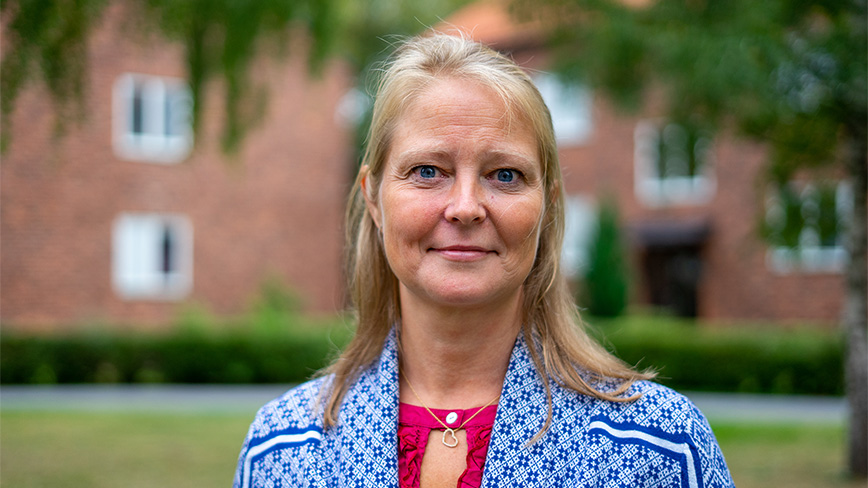Karin Odelius – new professor in polymer technology

On July 1, 2022, Karin Odelius was promoted to professor in Fiber and polymer technology – bio-based functional materials.
“It's super fun and very exciting! It's something I've been working towards for a long time, so it feels incredible to have reached that goal,” says Karin Odelius.
Karin Odelius has been at KTH since her undergraduate studies. In addition to leading a research group of three people, she is the program manager for the Master's program in Macromolecular Materials and deputy undergraduate education manager.
”The research we conduct is about designing and creating functional and durable materials to find solutions to challenges linked to material issues. Plastic has an incredible number of fantastic properties that contribute to sustainable development, but there are challenges around the fact that we create a lot of rubbish, that the raw material is fossil-based and how we manufacture the plastic. My thinking is that we neither can nor should replace plastics, but we must find more sustainable solutions.”
What are you doing to tackle these issues?
”We look at new material solutions where we aim to get it right from the start. Questions we ask ourselves are, for example, what the raw material should be and how we make the most of it in a sustainable way. We want to ensure that we achieve the material properties we are looking for, and when we have used the material it must be designed for recycling.”
What is the plastic made of?
”Building blocks from renewable raw materials. It is a very important step in making sustainable materials. But in my view, that it is not enough. We also need to manage the manufacturing and recycling sustainably – and simply start looking at the whole life cycle of materials.”
At what stage is the research, has anything been launched commercially?
”No. We aim for specific properties, materials and products, but it is primarily basic research that we conduct.”
How did you get interested in this?
”It may sound naive, but I want to contribute to the world going in the right direction, to make it better, and that motivates me. This is important now, and it will become even more important.”
What is the next step in your research?
”I am very much looking forward to working with the projects I am involved in, but also participating in new projects. I think that it’s super fun to teach and participate and manage the education, and also to collaborate with the environment, to contribute to an understanding of the material group as such. I think it contributes to finding sustainable solutions.”
Text: Sabina Fabrizi

